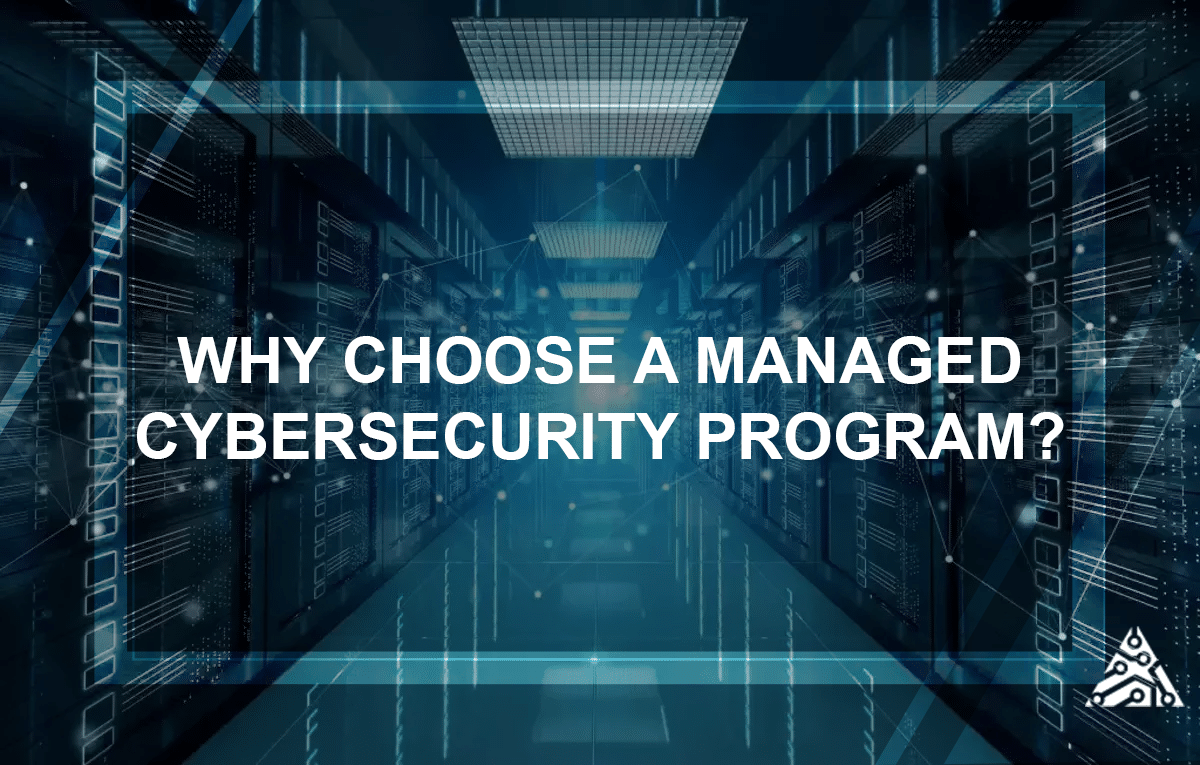With cyber threats evolving at an unprecedented rate, businesses must adopt robust security measures to protect their assets, data, and reputation. For many organizations, especially small to mid-sized businesses, managing cybersecurity in-house can be challenging, costly, and inefficient. This is where a managed cybersecurity program becomes invaluable.
The Rising Tide of Cyber Threats
Cyber threats are constantly evolving, with attackers employing sophisticated techniques to breach security defenses. From phishing attacks and ransomware to advanced persistent threats (APTs) and zero-day vulnerabilities, the landscape is fraught with dangers that can cripple businesses. In 2023 alone, the cost of cybercrime was estimated to reach over $10.5 trillion annually by 2025. This staggering figure underscores the urgent need for businesses to adopt proactive and comprehensive cybersecurity measures.
Why In-House Cybersecurity Often Falls Short
While some businesses attempt to manage their cybersecurity internally, this approach often falls short for several reasons:
- Resource Constraints: Small to mid-sized businesses typically lack the resources to hire and retain a full-fledged cybersecurity team. Cybersecurity experts are in high demand and command high salaries, making it challenging for smaller organizations to compete.
- Complexity and Expertise: Cybersecurity is a complex and rapidly changing field. Staying abreast of the latest threats, tools, and best practices requires continuous learning and expertise. In-house teams may struggle to keep up with the pace of change.
- Tool Integration and Management: Effective cybersecurity requires a suite of tools and technologies that must be seamlessly integrated and managed. In-house teams may lack the experience and bandwidth to effectively deploy, configure, and maintain these tools.
- 24/7 Monitoring: Cyber threats do not adhere to business hours. Effective cybersecurity requires round-the-clock monitoring and response capabilities, which can be difficult to achieve with a limited in-house team.
The Advantages of a Managed Cybersecurity Program
A managed cybersecurity program addresses these challenges by offering a comprehensive, scalable, and expert-driven solution. Here are some key advantages:
- Expertise and Experience: Managed security service providers (MSSPs) bring a wealth of expertise and experience to the table. Their teams of cybersecurity professionals are well-versed in the latest threats, tools, and best practices. This ensures that your business is protected by cutting-edge security measures.
- Comprehensive Coverage: Managed cybersecurity programs cover all aspects of security, from threat detection and incident response to compliance management and strategic consulting. This holistic approach ensures that all potential vulnerabilities are addressed.
- Scalability: As your business grows, so do your cybersecurity needs. Managed programs are scalable, allowing you to adjust your security measures as your requirements evolve. This flexibility ensures that you are always adequately protected without overcommitting resources.
- Cost-Effectiveness: Managing cybersecurity in-house can be prohibitively expensive. Managed programs offer a cost-effective alternative by providing access to top-tier security experts and technologies at a fraction of the cost of building and maintaining an in-house team.
- 24/7 Monitoring and Response: Cyber threats can strike at any time. Managed programs include round-the-clock monitoring and response capabilities, ensuring that threats are detected and addressed promptly, minimizing potential damage.
- Regulatory Compliance: Navigating the complex landscape of cybersecurity regulations and standards can be daunting. Managed cybersecurity providers are well-versed in industry-specific compliance requirements and can help ensure that your business meets all necessary standards, reducing the risk of costly fines and reputational damage.
- Proactive Threat Hunting: Managed programs go beyond passive monitoring by incorporating proactive threat hunting. This involves actively searching for signs of compromise and addressing them before they can escalate into full-blown incidents.
Key Components of a Managed Cybersecurity Program
A robust managed cybersecurity program is designed to provide comprehensive protection for your business. Here are some key components:
- Risk Assessment and Management: Managed cybersecurity providers conduct thorough risk assessments to identify potential vulnerabilities and develop a customized security strategy. This proactive approach helps mitigate risks before they can be exploited.
- Continuous Monitoring and Incident Response: Security Operations Centers (SOCs) provide continuous monitoring of your network, identifying and responding to threats in real-time. This ensures that incidents are swiftly addressed, minimizing potential damage.
- Threat Intelligence and Analytics: Managed providers leverage advanced threat intelligence and analytics to stay ahead of emerging threats. By analyzing patterns and indicators of compromise, they can proactively defend against new attack vectors.
- Endpoint Detection and Response (EDR): EDR solutions provide comprehensive protection for all endpoints, ensuring that devices connected to your network are secure. This includes monitoring for suspicious activity and responding to threats in real-time.
- Compliance Management: Managed providers help businesses navigate the complex landscape of cybersecurity regulations and standards. Their experts ensure that your security measures align with industry-specific compliance requirements, reducing the risk of non-compliance penalties.
- Security Awareness Training: Human error remains one of the leading causes of cybersecurity incidents. Managed providers offer security awareness training programs to educate your employees on best practices and how to recognize and respond to potential threats.
- Vulnerability Management: Managed providers conduct regular vulnerability assessments and penetration testing to identify and address weaknesses in your security posture. This proactive approach helps prevent potential breaches.
- Disaster Recovery and Business Continuity Planning: In the event of a cyber incident, having a robust disaster recovery and business continuity plan is crucial. Managed providers help businesses develop and implement these plans to ensure minimal disruption and rapid recovery.
Why a Managed Cybersecurity Program is the Right Choice
In an era where cyber threats are more sophisticated and damaging than ever, choosing a managed cybersecurity program is a strategic decision that can safeguard your business’s future. A comprehensive, scalable, and expert-driven approach ensures that your organization is protected against the full spectrum of cyber threats. By partnering with a managed cybersecurity provider, you gain access to unparalleled expertise, advanced technologies, and proactive threat management, all at a cost-effective price point.
Managed Security Service Providers (MSSPs) and Managed Service Providers (MSPs) offer the expertise and resources that businesses need to stay secure in an increasingly complex threat landscape. Investing in a managed cybersecurity program is not just about protecting your business today—it’s about securing your future. With the right provider by your side, you can focus on what you do best, confident that your cybersecurity needs are in capable hands. Don’t wait for a cyber incident to realize the importance of robust security measures. Choose a managed cybersecurity program and take a proactive step towards a secure and resilient business.



